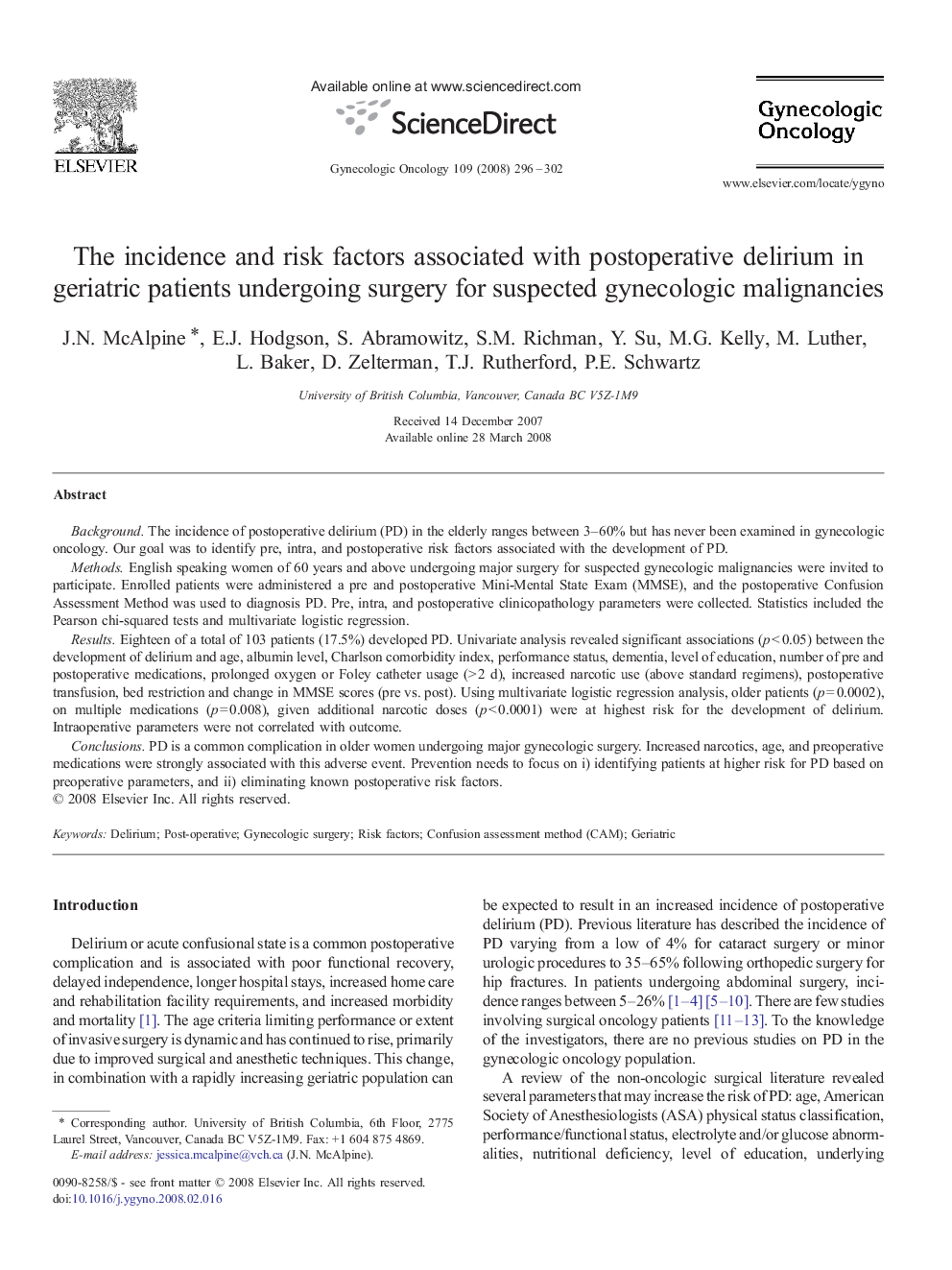| Article ID | Journal | Published Year | Pages | File Type |
|---|---|---|---|---|
| 3947535 | Gynecologic Oncology | 2008 | 7 Pages |
BackgroundThe incidence of postoperative delirium (PD) in the elderly ranges between 3–60% but has never been examined in gynecologic oncology. Our goal was to identify pre, intra, and postoperative risk factors associated with the development of PD.MethodsEnglish speaking women of 60 years and above undergoing major surgery for suspected gynecologic malignancies were invited to participate. Enrolled patients were administered a pre and postoperative Mini-Mental State Exam (MMSE), and the postoperative Confusion Assessment Method was used to diagnosis PD. Pre, intra, and postoperative clinicopathology parameters were collected. Statistics included the Pearson chi-squared tests and multivariate logistic regression.ResultsEighteen of a total of 103 patients (17.5%) developed PD. Univariate analysis revealed significant associations (p < 0.05) between the development of delirium and age, albumin level, Charlson comorbidity index, performance status, dementia, level of education, number of pre and postoperative medications, prolonged oxygen or Foley catheter usage (> 2 d), increased narcotic use (above standard regimens), postoperative transfusion, bed restriction and change in MMSE scores (pre vs. post). Using multivariate logistic regression analysis, older patients (p = 0.0002), on multiple medications (p = 0.008), given additional narcotic doses (p < 0.0001) were at highest risk for the development of delirium. Intraoperative parameters were not correlated with outcome.ConclusionsPD is a common complication in older women undergoing major gynecologic surgery. Increased narcotics, age, and preoperative medications were strongly associated with this adverse event. Prevention needs to focus on i) identifying patients at higher risk for PD based on preoperative parameters, and ii) eliminating known postoperative risk factors.
